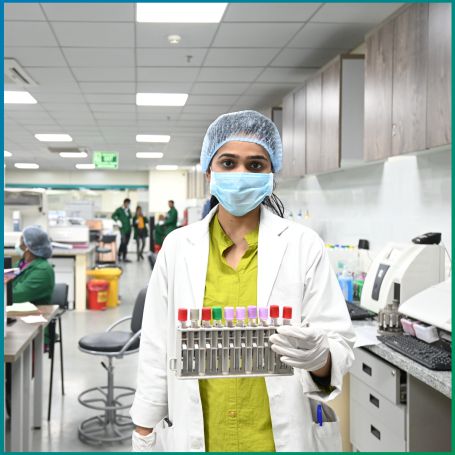
A stool culture and sensitivity test is a vital diagnostic procedure that helps identify infections in the gastrointestinal tract caused by bacteria, viruses, or parasites.

It is commonly recommended when a patient exhibits symptoms such as diarrhea, abdominal pain, or fever that may be linked to an infection. Understanding this test, its purpose, and the interpretation of results is essential for ensuring proper treatment and recovery.
A healthcare provider may recommend a stool culture test pune when you experience the following symptoms:
1] Persistent diarrhea (lasting more than a few days)
2] Blood or mucus in the stool
3] Abdominal cramps or pain
4] Unexplained fever
5] Dehydration caused by diarrhea
1] Sample Collection: The patient is provided with a sterile container to collect a stool sample. It is crucial to follow the healthcare provider’s instructions carefully to avoid contamination.
2] Laboratory Analysis: The stool sample is then cultured in the lab, where it is incubated to encourage the growth of bacteria or other microorganisms.
3] Sensitivity Testing: Once the pathogens are identified, they undergo sensitivity testing, which involves exposing them to various antibiotics to see which ones effectively inhibit their growth.
4] Results: The stool culture test results help doctors identify the cause of the infection and select the most effective antibiotic treatment.
The stool culture and sensitivity test results can help diagnose a bacterial infection and determine how to treat it effectively. The results typically include the following:
1] Positive Culture: A positive result indicates the presence of harmful microorganisms in the stool. The report will specify the type of bacteria or pathogen detected, such as Salmonella or E. coli.
2] Negative Culture: A negative result means that no pathogenic bacteria were found in the stool sample.
Diagnopein offer comprehensive, accurate, and timely diagnostic services, including the stool culture and sensitivity test Pune. With our NABL Certified lab, cutting-edge technology, and skilled technicians, you can be assured of reliable results every time. Get your results quickly, especially when time is crucial in detecting severe infections.
Competitive pricing without compromising on quality. Our team of experienced professionals ensures the test is conducted smoothly with minimal discomfort. We provide not just the stool culture and sensitivity test results but insights into your health condition, helping you and your doctor make informed decisions about treatment. For more information call us at +91 9204 108108.
1. Culture Method
2. Sample
3. Colony Count
4. Organism(s) Isolated
5. Culture Report: Culture yields growth of
6. Culture isolated after 7 days :
7. Culture isolated after 14 days:
8. Culture isolated after 21 days:
9. Ampicillin
10. Amikacin
11. Amoxicillin clavulanate
12. cefoperazon+sulbactam
13. Cefuroxime
14. Cefepime
15. Cefotaxime
16. Ciprofloxacin
17. Ertapenem
18. Gentamicin
19. Imipenem
20. Meropenem
21. Norfloxacin
22. Nitrofurantoin
23. Piperacillin-tazobactam
24. Trimethoprim-Sulfamethoxazole (Cotrimoxazole)
There are no risks associated with providing a stool sample for a culture and sensitivity test. It’s a non-invasive procedure.
Yes, you can eat normally before a stool culture test unless advised otherwise by your healthcare provider.
You generally don’t need to prepare for the test. However, avoid using antibiotics, antidiarrheal medications, or laxatives before the test unless advised by your doctor, as they may interfere with the results.
No, a stool culture mainly detects bacterial infections. For viral causes of gastrointestinal issues, other tests may be required.